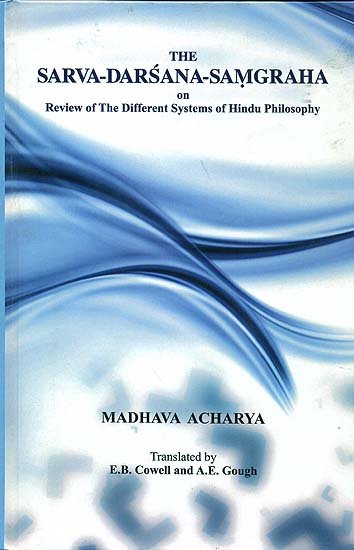The Sarva-Darsana-Samgraha
by E. B. Cowell | 1882 | 102,190 words | ISBN-13: 9788174791962
The Sarva-darsana-samgraha (English translation) of Madhava Acharya is a compendium of different philosophical schools of Hindu thought and Pancadasi, an important text in the Advaita Vedanta tradition. Full title: Sarvadarśanasaṅgraha or Sarvadarśanasaṃgraha: Review of the Different Systems of Hindu Philosophy (author Mādhava Ācārya)...
Prologue
1. I worship Śiva, the abode of eternal knowledge, the storehouse of supreme felicity; by whom the earth and the rest were produced, in him only has this all a maker.
2. Daily I follow my Guru Sarvajña-Viṣṇu, who knows all the Āgamas, the son of Śārṅgapāṇi, who has gone to the further shore of the seas of all the systems, and has contented the hearts of all mankind by the proper meaning of the term Soul.
3. The synopsis of all the systems is made by the venerable Mādhava mighty in power, the Kaustubha-jewel of the milk-ocean of the fortunate Sāyaṇa.
4. Having thoroughly searched the Śāstras of former teachers, very hard to be crossed, the fortunate Sāyaṇa-Mādhava[1] the lord has expounded them for the delight of the good. Let the virtuous listen with a mind from which all envy has been far banished; who finds not delight in a garland strung of various flowers?
Footnotes and references:
[1]:
Dr. A. C. Burnell, in his preface to his edition of the Vaṃśa-Brāhmaṇa, has solved the riddle of the relation of Mādhava and Sāyaṇa. Sāyaṇa is a pure Draviḍian name given to a child who is born after all the elder children have died. Mādhava elsewhere calls Sāyaṇa his "younger brother," as an allegorical description of his body, himself being the eternal soul. His use of the term Sāyaṇa-Mādhavaḥ here (not the dual) seems to prove that the two names represent the same person. The body seems meant by the Sāyaṇa of the third śloka. Māyaṇa was the father of Mādhava, and the true reading may be śrīman-māyaṇa.
